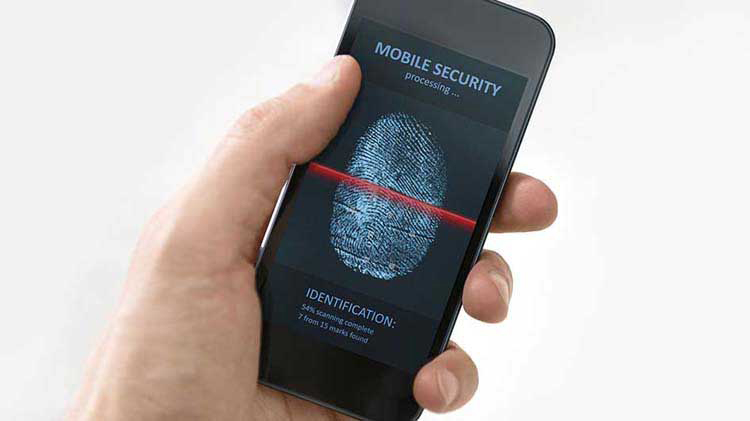How to know if you are receiving a spoof call
Call spoofing is a common tool used by scammers. Read on for tips on how to spot a potential scam.
Introduced in the late 80s, caller ID was a way for people to screen nuisance calls. It's now become a way for scammers to make them. Find out how call spoofing works and how to recognize it.
Chances are, you've received a phone call in which the caller ID displays the legitimate number of a local business or someone from your neighborhood.
But when you answer, the person on the other end of the line is not who you were expecting. The caller may also try to convince you they are someone you do business with, a legitimate organization or a government agency like the Social Security Administration (SSA) or the Internal Revenue Service (IRS).
What is call spoofing?
The Federal Communications Commission (FCC) defines spoofing as a call made with a deliberately falsified caller ID intended to disguise the caller’s identity. A scammer may alter their number to appear more trustworthy to their target, such as a local number, the number of a business or government agency. Once the call is spoofed, potential victims of spoof calls are more likely to answer, at which point scammers will attempt to trick them into giving up personal information to try to steal their identity or money.
How are calls spoofed?
Different types of call spoofing may include:
- Neighbor spoofing – this refers to spoofing a number with the victim's area code so that the scammer appears to be someone local that the target might know, increasing the likelihood for them to answer the call.
- VoIP – Voice over Internet Protocol (VoIP) software is a common facilitator for call spoofing, allowing calls to be made using internet data. Many VoIP services allow the user to choose the number and name displayed when calling.
- Spoofing services – there are dedicated services for call spoofers that allow users to input the number they wish to call and their desired caller ID, placing the call digitally. Some spoofing services offer additional features like call recording, text messaging and voice spoofing.
- Voice spoofing – using advanced AI voice construction programs, some scammers use recordings of real voices to construct spoofed voices. These fake recreations can even be used to imitate a person close to the target like a close friend or family member.
How can I recognize a spoofed call?
You may not be able to tell right away if the number displayed on your caller ID is a spoofed number, so always be suspicious of unexpected callers. Con artists can be convincing — some can sound kind while others sound threatening. Consider these tips from the FCC as they may help to protect your information from phony callers.
- Don't answer a call from an unknown number. If you must answer unknown calls, wait for the caller to identify themself and do not speak first, as it could be an attempt to record you for voice spoofing.
- When answering the phone, if the caller asks you to press a button to stop receiving calls, hang up. This is a common way scammers attempt to identify potential targets.
- Don't answer any questions from an unknown caller. Be especially careful if they immediately initiate “Yes” or “No” questions.
- Never give out personal information. Anything from seemingly mundane information, like your mother’s maiden name or hometown, to account numbers, passwords and Social Security numbers can be used by scammers to defraud innocent people. Protect your bank account data and keep your personal information safe.
- If you’re called by someone claiming to represent a company or a government agency, you can hang up, then manually redial the number on your account statement or the relevant agency’s website to confirm if the inquiry is authentic. Typically — though not always — you will get a physical document via mail before getting a phone call if the call is legitimate.
- Be extremely careful if the caller is insistent or you feel pressured. Some scammers may try to intimidate you into giving up information.
- Set a password for your voicemail. Some voicemail services automatically allow access when called with the account’s phone number. If a hacker spoofs your number, they could gain access to your messages if no password has been set.
- Consider looking into call blocking tools such as mobile phone apps designed to help screen scam calls and catch phone spoofing. Phone companies are also legally empowered to block robocalls by default along guidelines set by the FCC.
Businesses and organizations are sometimes aware their numbers are being spoofed. Check their websites to see if they're alerting customers of current call spoofing scams. State Farm® posts information about call spoofing and other known fraudulent activity on this Security page. If you think you've been the victim of a spoofing scam, you can file a complaint with the FCC.
Phone scam examples
These are some common scams attempted by call spoofers:
- Prize/opportunity scams – the caller claims you’ve won a prize or offers you a can’t-miss business opportunity. They’ll eventually explain all that’s required to claim your prize or participate in the opportunity is an upfront fee or some identifying information. Once they collect these from you, the scammer disappears without making good on their promise.
- Government impersonation – the caller claims to be a representative of a government institution, then threatens you’ll face consequences unless you provide identifying information like your Social Security number. Once your sensitive information is acquired, the scammer commits identity theft and fraud with your name.
- The unpaid tax scam – common IRS scams involve a scammer impersonating an IRS representative and informs the target of their alleged unpaid taxes and risk of arrest. Please note: The IRS will never call you to threaten you with consequences for unpaid bills. Most commonly, those with outstanding debts will receive a registered letter as well as options for payment and contact information for the IRS.
- Tech support scams – in this scam, the caller pretends to be a helpful tech support agent, claiming they can solve a critical problem with your computer. Some may try to sell you on a fraudulent repair service, fake software or even malware. Others may attempt to talk you into giving them remote access to your computer, at which point they may install malware on your computer directly.
What can I do if my number is being spoofed?
If someone calls and says you called them but didn't, your number was likely spoofed. The FCC advises to inform the person who received a spoofed call from your number that it wasn't you. Fortunately, according to the FCC, scammers usually switch numbers frequently so it's likely your number will be replaced by someone else's number within hours.
If you believe you may be the target of a phone scam or call spoofing attempt, trust your instincts and hang up right away. After the call has ended, remember that you can follow up with the FCC by filing a complaint.




